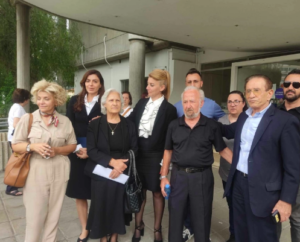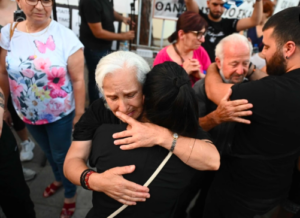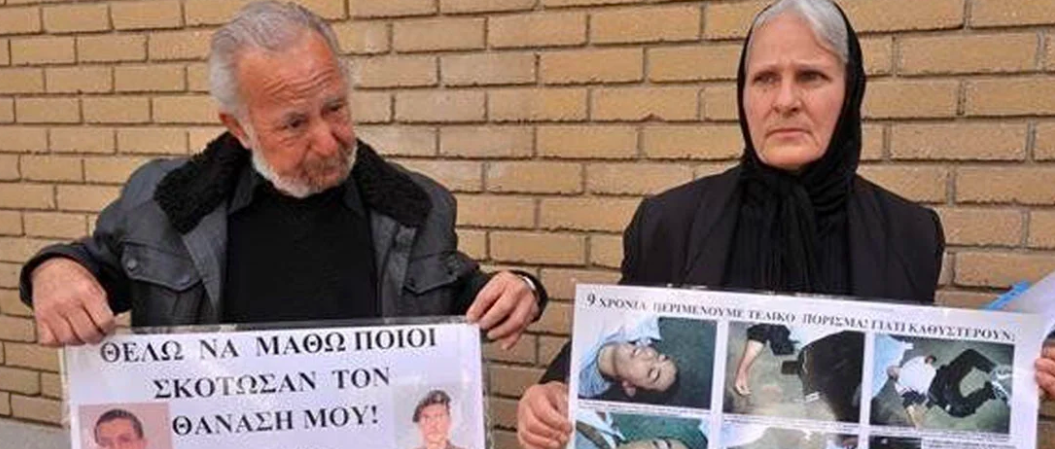Today, Doria Varosiote, the examing magistrate, delivered the decision to the Limassol Court concerning the death of 26-year-old Thanasis Nikolaou, who was discovered dead under a bridge in Alasa village near Limassol on September 29, 2005. The investigation concluded that Thanasis Nikolaou was murdered by strangulation. Upon the announcement of the decision, there was applause from the Nikolaou family, friends, relatives, and citizens.
Mrs. Varosiote highlighted that the truth in Thanasis’ case emerged from incontrovertible evidence found by Mrs. Karagianni, a pathologist. Mrs. Karagianni’s scientific findings, which were based on relevant findings indicated that the lack of secretion was evidence of strangulation. Accepted was Mrs. Karagianni’s interpretation who was hired by Thanasis Nikolaou’s family. Regarding evidence and conclusions the secretions prove strangulation and that the fracture occurred while the victim was still alive.


The report on Thanasis’s death emphasized the nightmarish experiences he endured in the army. It detailed the painful process of the death inquiry, marked by tensions and counter-accusations. Despite this, it remained within the established framework. The examining magistrate delved into the case history, highlighting Thanasis’s suffering from bullying and abuse during his military service. The examination by the Cypriot government pathologist and the actions of the police were also mentioned. Furthermore, previous death inquiries and investigations were discussed, along with Cyprus’s condemnation by the ECHR for mishandling the case.
Adriana Nicolaou, the mother of Thanasis, who has been advocating for 19 years that her son was murdered and did not commit suicide, expressed her feelings in court, stating, “It’s not justice, it’s moral satisfaction.” She emphasized the importance of uncovering the truth and holding those responsible accountable. Nicolaou thanked everyone who supported her and highlighted the struggles endured to reveal the truth behind her son’s death. She criticized the efforts made to cover up the crime and expressed her determination to seek justice. While acknowledging that the decision won’t bring her child back, she found solace in the hope that justice would prevail. Nicolaou asserted that the crime was evident from the beginning, refusing to be deceived by attempts to conceal the truth.
The recent investigation confirms the murder of Thanasis but doesn’t attribute responsibility. Three individuals were considered as possible perpetrators, but lacked evidence linking them to the crime. However, the Forensic Pathologist and three Police Officers were recommended for prosecution due to negligence in the investigations. Despite another police investigation, no charges were filed, and the Attorney General closed the case. The death inquest confirmed the murder but didn’t assign responsibility. The Attorney General may opt to archive the case due to insufficient evidence for prosecutions.
Ask me anything
Explore related questions





